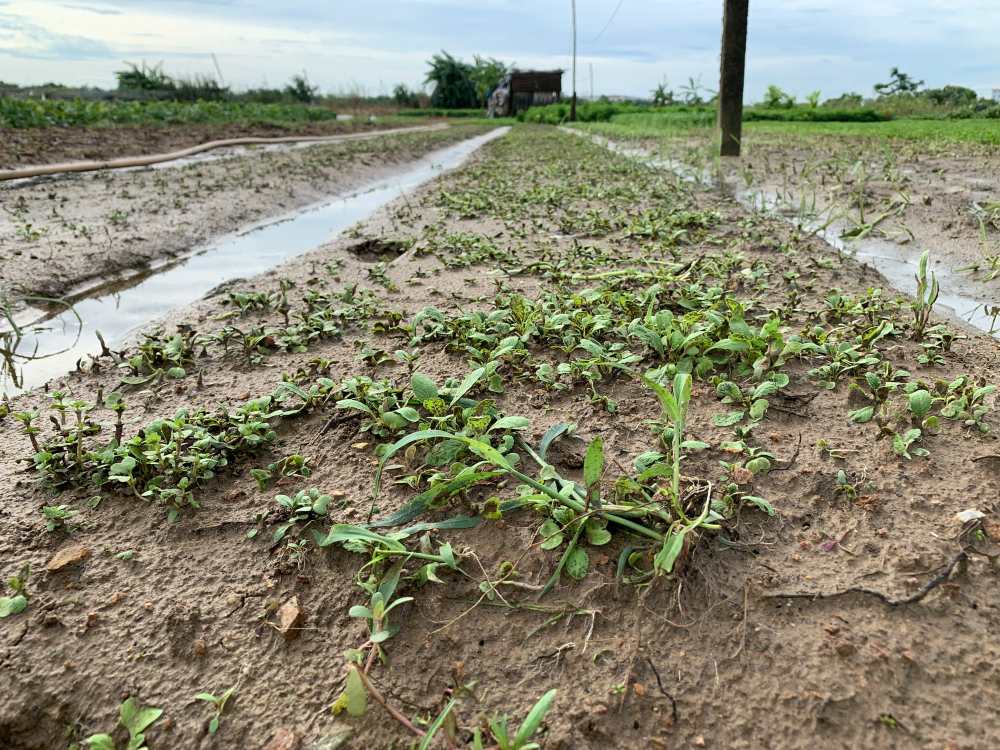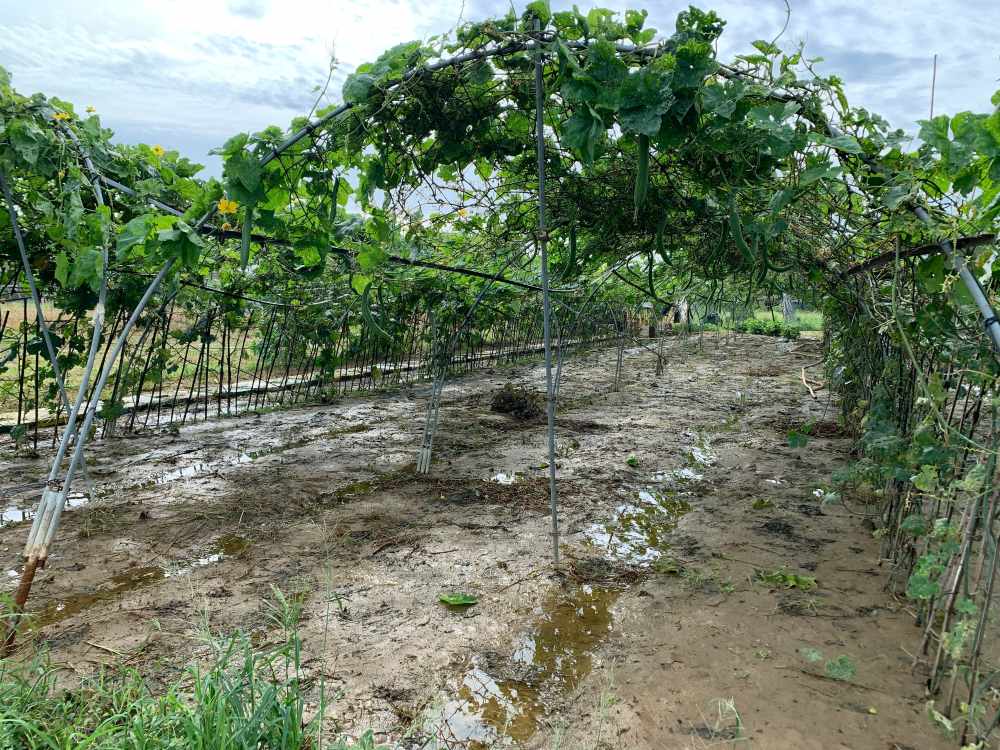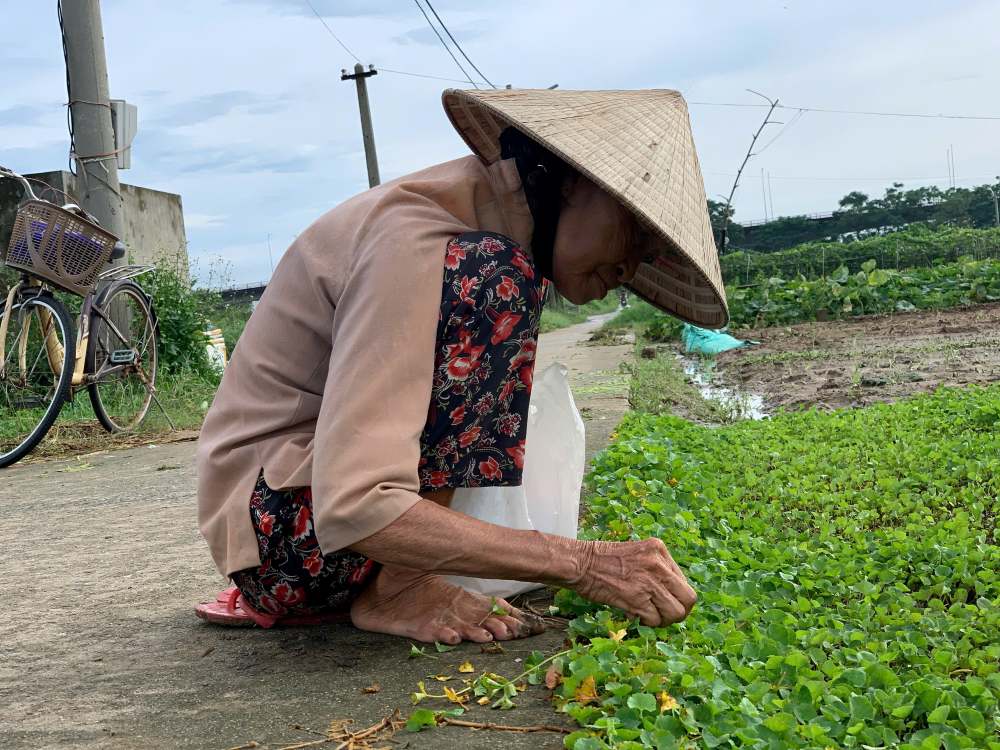The La Huong vegetable area has an area of about 7 hectares with 55 specialized households. This is considered the largest clean vegetable garden in Da Nang City, meeting the main vegetable supply for markets in the city.
However, due to the impact of storm No. 10 causing heavy rain, many households that had just sowed winter vegetables had to remove all the beds to re-sow from the beginning.

Ms. Tran Thi Chien - a regular vegetable grower at La Huong vegetable garden - said that after the recent heavy rain, many beds of her newly sown mustard and amaranth vegetables were flooded, so they had to be replanted.
The squash and squash soaked in water for many days as long as the sun is up, the fruit will fall and the plants will die due to waterlogging.

Here, most vegetable growing is harvested in October, November, December, January, and the remaining months of growing vegetables as a bet on the weather, selling them for a small fee or lose them all. If it rains less, the vegetables will be healthy, but if it rains more, if it rains for a long time, the vegetables will be crushed and flooded with water.
There are prolonged heavy rains that cause vegetables to sink into water, people here have to pick up vegetables from the water and throw them away because they are flooded and damaged, in such seasons they are almost unclean and cannot do business at all," Ms. Chien shared.
According to households growing vegetable gardens, during this time of heavy rain and storms, most households grow less vegetables, most of them leave vacant land to work elsewhere, wait until December and January to grow a lot because the weather is better and more favorable.

Mr. Le Truong Hai - Deputy Director of La Huong Vegetable Cooperative. said: "During the recent heavy rain, most vegetable gardens were affected by rainwater, some winter vegetable and mustard growers were crushed by prolonged heavy rain.
Crops like squash, squash, and other crops have been flooded in water and rain for a long time, causing a significant decrease in productivity. These crops will fall off when they have new fruits, so most farming households have to remove them to replant new crops.










